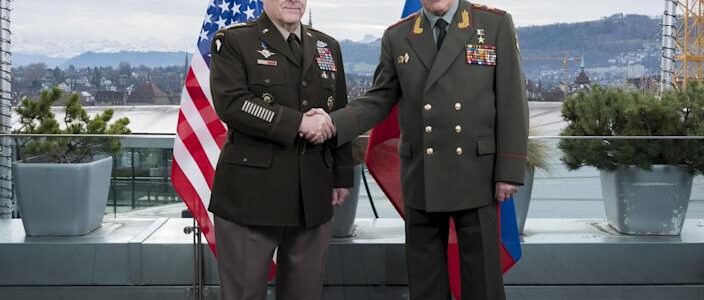
The top U.S. military officer met with his Russian counterpart on Wednesday as the United States works to implement the next steps in efforts to combat terrorism.
Gen. Mark Milley, chairman of the Joint Chiefs of Staff, and Russian General Staff Gen. Valery Gerasimov met in Helsinki, Finland, and the meeting came at a crucial time in the U.S.’s altered presence in the Middle East.

The meeting was “a continuation of the talks aimed at improving military leadership communication between the two nations for the purposes of risk reduction and operational de-confliction,” according to a statement from Col. David Butler, a spokesman for the Joint Chiefs of Staff.
The statement also noted that both sides “have agreed to keep the specific details of their conversation private.”

With the U.S. withdrawing all of its troops from Afghanistan at the end of last month, ending the two-decade war, it left the military and intelligence communities at a disadvantage, given the lack of people in the country.
U.S. leaders have warned about the possibility of a resumption of terrorist activities in Afghanistan since the Taliban are now in control. The militant group’s return to power has sparked concerns that they could allow terror organizations, including ISIS-K and al Qaeda, to reconstitute under the Taliban’s regime. Various U.S. intelligence officials said that al Qaeda could regain the capability to attack the U.S. homeland within a year or two.
The U.S. will be relying on its “over-the-horizon” strike capabilities in the region, though experts have stressed that such missiles require very specific and timely intelligence that is difficult to gather without anyone physically there.
Russian Deputy Foreign Minister Sergei Ryabkov said in July that Russia warned the U.S. that deploying troops to any neighboring country of Afghanistan would be “unacceptable,” according to the Associated Press. At the time, he said his country told its U.S. counterparts “in a direct and straightforward way that it would change a lot of things not only in our perceptions of what’s going on in that important region, but also in our relations with the United States.”
Credit: Yahoo News
